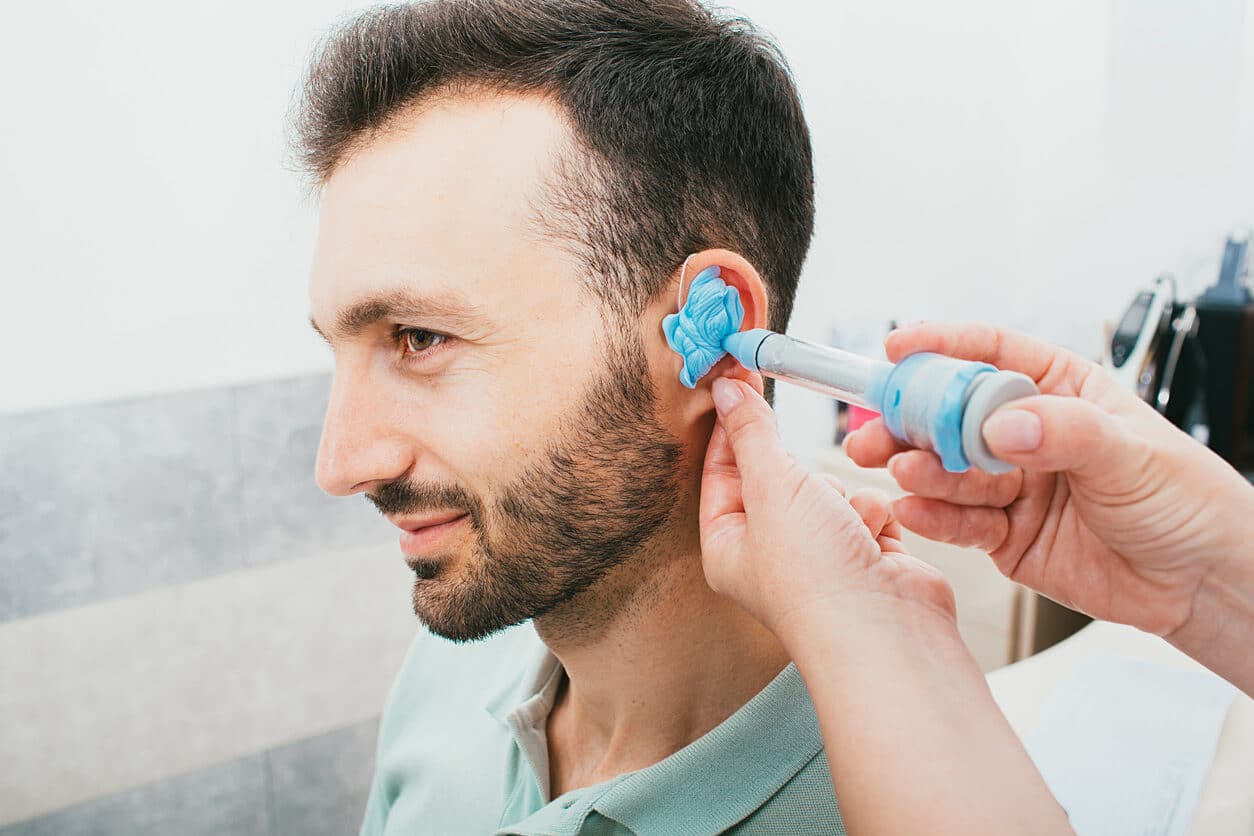Whether you took a woodshop class in high school, worked in construction or attended many concerts at the Hollywood Bowl, you’re probably familiar with hearing protection options like earmuffs or earplugs. While earmuffs and earplugs offer good hearing protection, people frequently exposed to high-volume noise may want to consider custom earplugs to ensure their hearing health.
Why Is Hearing Protection Important?

Your inner ear has a small organ called the cochlea. The cochlea is filled with thousands of tiny hair cells responsible for transmitting sound to the brain. When loud noise travels into the cochlea, it can overstress the hair cells, causing them to bend or die, and result in temporary or permanent hearing loss.
Noise is measured in decibels (dB). For example, a washing machine usually emits about 70 dB of noise, and a nearby ambulance siren sits at about 120 dB. To help prevent damage, you should wear hearing protection when exposed to noise over 85 dB for a prolonged period or over 120 dB for any amount of time.
How Are Custom Earplugs Better?
Earplugs and earmuffs work by dampening the force with which sound hits your ears. While many people may receive sufficient protection from standard earplugs, custom options provide extra benefits, including:
- Perfect fit. Custom earplugs form a perfect seal around your ear canal to block out sound and water, making them an excellent option for swimmers and patients exposed to a large amount of loud noise.
- Better sound quality. Many custom earplugs have special filters that allow you to control the amount of sound you hear, a perfect option for musicians and construction workers.
- Eco-friendly. Disposable earplugs are only meant to be worn once or twice, depending on the length of wear. Custom earplugs are designed for continuous wear, eliminating the need for excess environmental waste.
How To Know if Custom Earplugs Are Right for You
Custom earplugs are a great option for anyone consistently exposed to a lot of loud noise, including construction or woodshop workers, musicians, frequent concert attendees and more. They’re also an excellent option for patients concerned about advancing hearing loss.
If you’re interested in learning more about hearing protection, contact The House Institute today to make an appointment with one of our specialists.